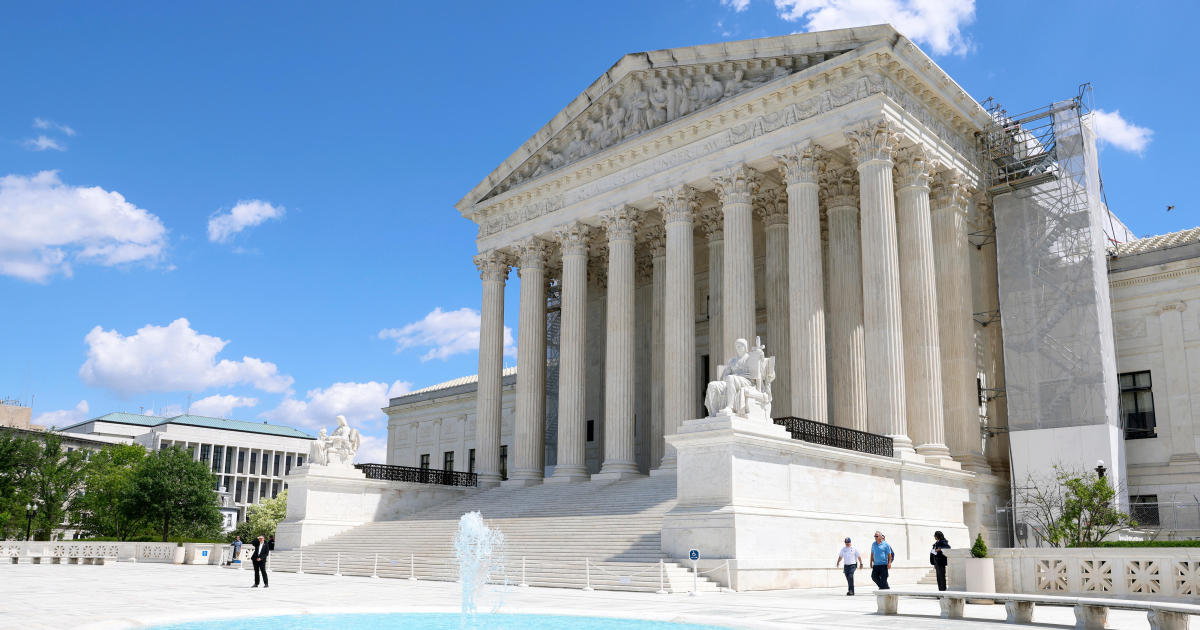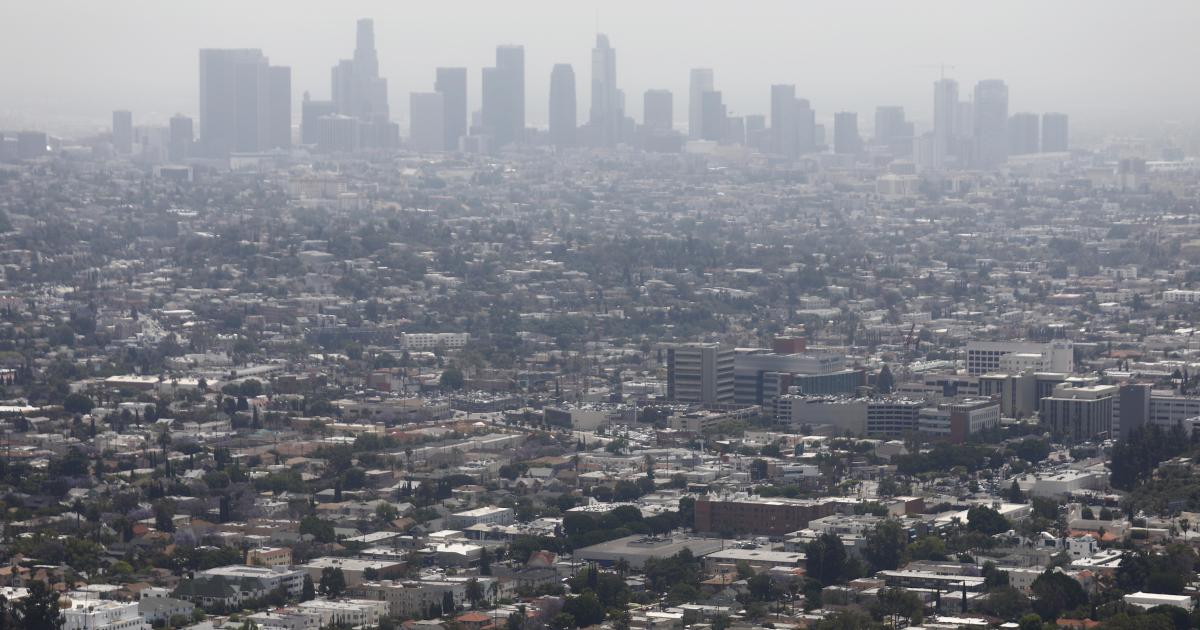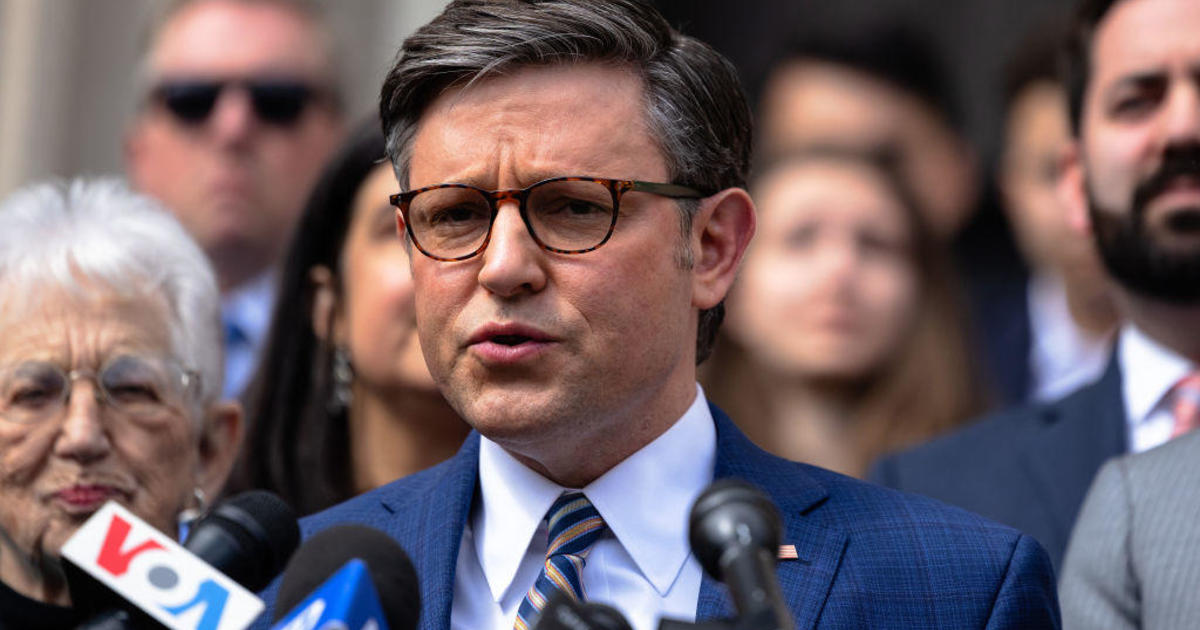D.C. statehood effort gets boost from House Dems and 2020 contenders
Unlike many state license plates, which offer pithy slogans such as "First in Flight" or "The Lone Star State," the standard ones for Washington, D.C. are protest statements, reminding everyone on the road that residents of the nation's capital don't have the same rights as other American citizens.
The plates say "Taxation Without Representation," echoing the complaint from colonial Americans that they were paying British taxes without having representation in the British Parliament. Two hundred and twenty-nine years after Washington was established as the capital of the United States, activists say its citizens can levy the same complaint against the government based in their hometown.
Washington, D.C., is the country's twentieth-largest city. With over 700,000 residents, it has more people than two states, Wyoming and Vermont, and only a bit fewer than Alaska and North Dakota. That population balloons each week with the high number of commuters from neighboring Virginia and Maryland, and the D.C. metro area is the sixth-largest metro area in the country.
Citizens of D.C. pay taxes and serve in the military. However, they have no full representation in Congress. Unlike other small states which have two senators and only one congressman, D.C. has no senators and only a delegate to the House of Representatives who cannot vote on final passage of any legislation.
And while D.C. has a mayor and a 13-member city council, Congress has the power to review and block any piece of legislation passed by the city government. The city budget is also wrapped into the federal appropriations process, leading to instances where members of Congress have blocked the city from subsidizing abortions for low-income women and from legalizing the sale of recreational marijuana.
The District's lack of representation is by design. Many of the founders were wary of putting the federal capital in any one state, and the Constitution stipulates that Congress could create "a District (not exceeding ten miles square)" that would "become the Seat of Government" for the new country. Those "ten miles square" were ceded by Maryland and Virginia to form the original boundaries of Washington, D.C.
Citizens of the district lost voting rights in 1801, when the Organic Act of 1801 formally placed D.C. under congressional control, meaning that residents no longer had rights as citizens of Maryland or Virginia. The 23rd Amendment, passed in 1961, allowed D.C. residents to vote for president, and it currently has three votes in the Electoral College.
But federal representation remains elusive. Frustrated, many in D.C. have turned to campaigning for statehood. If Wyoming and Vermont get full representation despite their smaller size, activists argue, then D.C. should get the same.
"We just want to be equal to everybody else," said Barbara Helmick, director of programs for statehood advocacy organization DC Vote, in an interview with CBS News. "We envision a fairer America where everybody truly has an equal voice in government."
The fight to pass D.C. statehood in the House
The movement to grant D.C. greater representation has been going on for decades. A proposed constitutional amendment to give D.C. full representation in Congress was proposed in 1978, but fell short of ratification and expired in 1985.
Congress last considered a measure to make D.C. a state over 25 years ago, in 1993. The statehood bill easily failed in the House with a vote of 277-153.
In 2016, D.C. voters overwhelmingly voted in favor of becoming a state in an advisory referendum. Eighty-six percent voted to advise the Council to petition Congress to allow D.C. to become a state.
With Democrats now in control of the House of Representatives, Congress has made more progress on the issue of D.C. statehood in 2019 than it has in decades. In March, the House approved the ethics reform package H.R. 1, which included a provision endorsing statehood for the district.
Del. Eleanor Holmes Norton, the district's non-voting representative in the House, introduced H.R. 51 this year, which would make D.C. the 51st state. The bill has over 200 co-sponsors in the House. A companion bill in the Senate has 32 co-sponsors. The House Committee on Oversight and Reform is holding a hearing on the bill on July 24.
"You don't give hearings to bills that aren't going to the House floor," said Norton, explaining that the hearing and the passage of H.R. 1 had made her feel "quite confident" about D.C.'s chances of becoming a state.
House Majority Leader Steny Hoyer, one of the biggest proponents of statehood in the House, is also a recent convert to the cause. Hoyer and former GOP Rep. Tom Davis of Virginia attempted to craft a deal to grant liberal-leaning D.C. one voting seat in the House and add another to conservative Utah for political balance. However, the effort failed in 2010 because of the addition of an amendment that would have overturned the district's strict gun control laws.
In an opinion piece in the Washington Post in May, Hoyer officially endorsed statehood, saying that he now believes "the only path to ensuring its representation is through statehood."
In an interview with CBS News, Hoyer said that he initially opposed full statehood because he thought it would be too difficult for legislation granting D.C. two senators to pass through Congress. But as a representative from Maryland, Hoyer understands the District's importance to the region.
"The District of Columbia is very much a part of the mainland, treated as an equal partner in the tri-state region," Hoyer said. "If Wyoming deserves voting members, so does the District of Columbia."
Helmick argued that making D.C. a state would not affect federal government buildings -- the White House, the Capitol, the Supreme Court and the national monuments would continue to be under federal jurisdiction, according to the plan endorsed by the D.C. Council in 2016. This could, in theory, sidestep the need for a constitutional amendment to grant D.C. statehood.
"The rest of the area -- our homes -- don't belong to all of America," Helmick said.
Challenges in the Senate
Even if a constitutional amendment is unnecessary, making D.C. a state faces a key hurdle: passage in the Senate. The Senate is still controlled by Republicans, and Majority Leader Mitch McConnell has declined to bring several House-passed bills to the Senate floor -- including H.R. 1.
Granting D.C. full representation of a state -- including two senators -- could tip the balance of the Senate in a way which is unfavorable to Republicans. The district is solidly Democratic; 90% of voters supported Hillary Clinton in 2016. Some Republicans fear that making D.C. a state would just hand Democrats two new senators, a key advantage for a party in such a closely divided Senate.
In an interview with the Washington Post's editorial board in 2016, then-presidential candidate John Kasich, a Republican, said that he thought adding D.C. as a state would just help Democrats.
"You know what, what it really gets down to, if you want to be honest, is because they know that's just more votes in the Democratic Party," Kasich said.
His view is shared by many fellow Republicans, especially as another presidential election approaches in 2020. McConnell told Fox News recently that making D.C. and Puerto Rico states would result in "full-bore socialism."
"The opposition to D.C. becoming a state is entirely political, and I don't think that has very much to do with D.C.," Norton said.
Hoyer agreed that opposition to D.C. statehood amounted to putting "politics over people." He noted that traditionally, states would be paired when they were added to the union, to circumvent concerns that adding just one state could tip the balance of the Senate.
Stasha Rhodes, the campaign manager for 51 for 51, another advocacy group looking to achieve statehood for D.C., said that opposition to statehood was at least party rooted in racism.
"Historically, it is frustrating that a city that has been majority-minority city has been denied statehood," Rhodes said. The population of D.C. is 47% African American, 36% white and 11% Hispanic. Both of the delegates who have been sent to Congress to represent D.C. since the constituency was established in the 1970s have been black.
"There's certainly levels of racism included in this," Rhodes said.
51 for 51 advocates for a non-traditional way to get D.C. statehood passed in the Senate: by eliminating the filibuster rule, which allows senators to talk for an unlimited period of time on bills which they oppose, and requires 60 votes to close debate. The idea is that if a bill for D.C. statehood required only 51 votes to end debate and pass in the Senate, instead of 60, it would be far more likely to become law.
Rhodes pointed out that the Senate recently changed the rules for confirming Supreme Court justices, where only 51 votes are needed to confirm a justice instead of 60.
"If 51 votes is enough to confirm a justice to the Supreme Court of the United States, it should be enough to make D.C. the 51st state," Rhodes said.
Since it launched in May, 51 for 51 has focused largely on convincing the Democratic presidential candidates to support eliminating the filibuster to make D.C. the 51st state. Advocates traveled to Iowa earlier in June to lobby presidential candidates on the issue.
Nine presidential candidates have endorsed the 51 for 51 campaign: Kirsten Gillibrand, Jay Inslee, Elizabeth Warren, Pete Buttigieg, Andrew Yang, Eric Swalwell, Tim Ryan, Steve Bullock, and John Delaney. Norton has also appeared in a video for 51 for 51 expressing her support for statehood and the campaign.
For Rhodes, there is no middle ground to getting greater representation for D.C. She opposes "retrocession," which would mean incorporating D.C. into Maryland to get it represented in Congress. Norton also wrote an opinion piece in the Washington Post opposing retrocession.
For many advocates of greater representation for D.C., there's only one option.
"Statehood all the way," Rhodes said.




